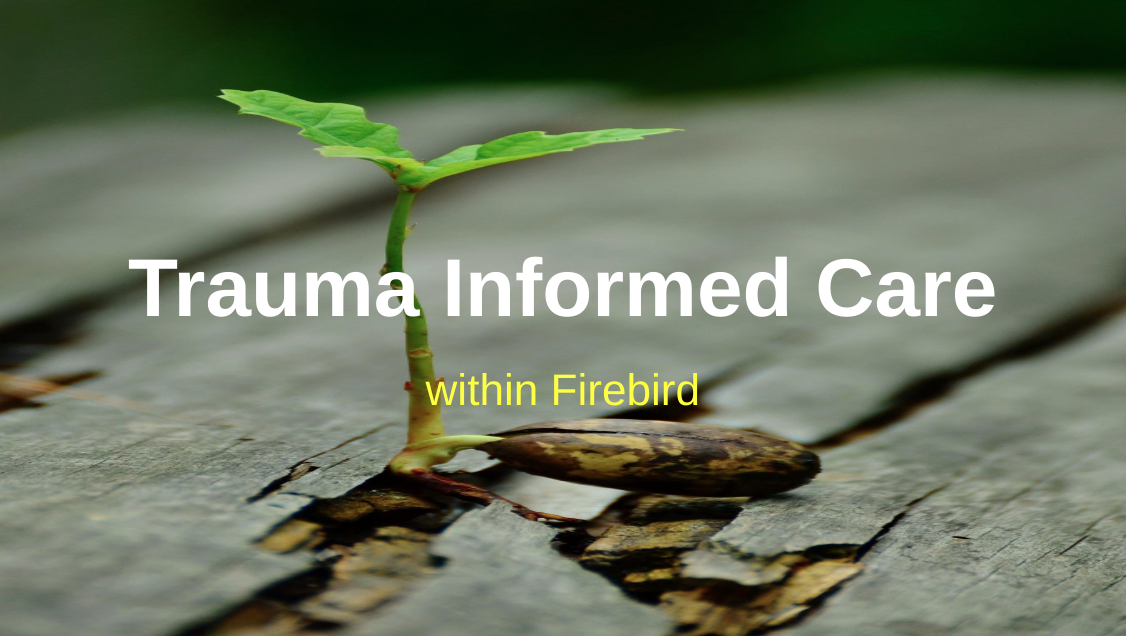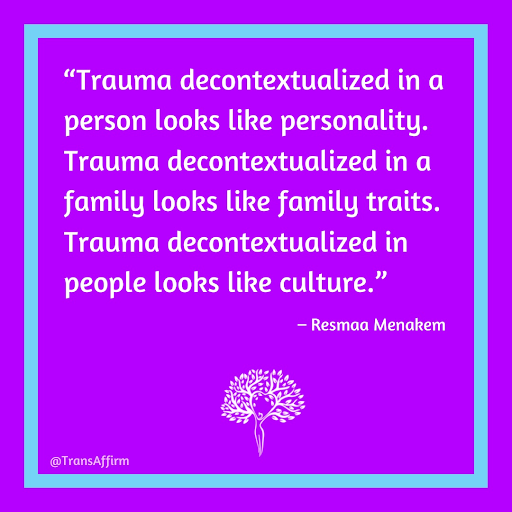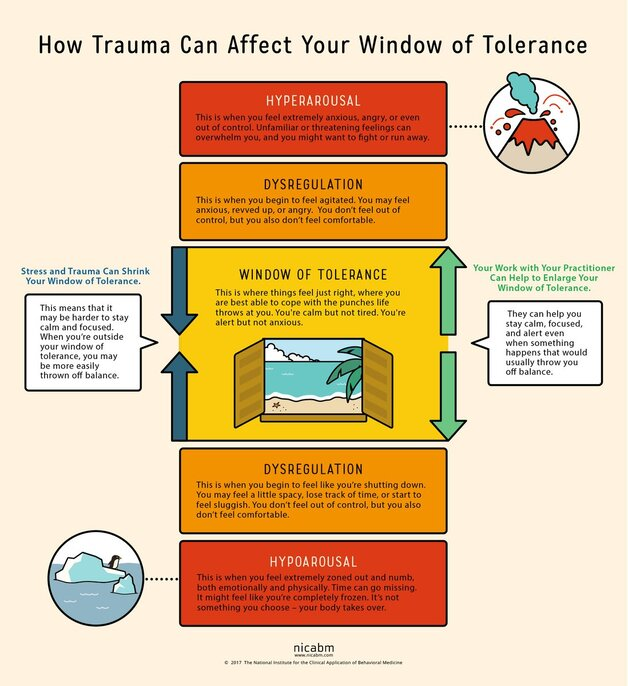Showing Our Work

Challenges and Strengths of Trauma Informed Care at Firebird
This Spring, Firebird's Social Worker, Danie Nitardy, facilitated two sessions for staff and leadership where they dove into specific concepts of trauma informed care that resonate most in our context. What ensued were rich discussions and complicated nuanced scenarios that defied simple answers or approaches. Here we share some highlights of our learning.
Trauma can be:
- Direct: Acute, Chronic, Complex
- Indirect: Vicarious, Secondary Traumatic Stress, Compassion Fatigue, Burnout
- Contextualized: Historical / Political / Inherited Family / Intergenerational / Transgenerational / Multigenerational / Structural / Collective / Identity Based
Our discussion focused on the importance of Contextual Trauma: We are able to recognize that factors like race, nationality, gender, sexuality, socio-economic status, etc. affect our ability to both heal ourselves and each other. We’re able to honor and recognize what our ancestors have been through, and how we can learn from their ways, continue and/or break the cycle of trauma.

Historical Trauma
- Is present-day developmental, superimposed upon a traumatic ancestral past, creating additional trauma and adversity
- Impacts spiritual, psychological, emotional and physical health
- Is an active accumulation and reverberation of trauma across generations
- Can affect the wellbeing and biology of descendants who have not directly experienced traumatic events, and can lead to symptoms of trauma in the descendants
- Symptoms can manifest as depression, rage, fixation on trauma, low self-esteem, racist socialization, addiction, spiritual emergency/crisis, and difficulties with change
- People coming into systems of services and support from communities who have been subjected to historical trauma may experience triggers with the systems that are retraumatizing and dehumanizing
Trauma-Informed and Trauma Responsive Approaches acknowledge how trauma is ongoing and seek to understand the signs and symptoms of trauma in those we work with. There is intention and praxis in place to avoid re-traumatizing/creating new traumas in all people involved. Further, we seek to heal trauma by creating new patterns (neuropathways), leading to post-traumatic growth.
Common Reactions to Trauma Include:
Emotional Reactions
- Fear and anxiety
- Anger
- Guilt
- Sadness
- Feeling numb
Changed Views of the World and Self
- Difficulty trusting people
- Believing the world is extremely dangerous (it can be)
- Blaming oneself
- Self-criticism for reaction to trauma
Re-experiencing
- Replaying the memory
- Nightmares and flashbacks
Hyperactive Nervous System
- Feeling on guard
- Being easily startled
- Difficulty sleeping
Avoidance
- Trying not to think about the event
- Avoiding anything related to it

Post-traumatic growth is a process whereby we transform our struggle into a new path, and an outcome where we experience positive changes because of the struggle in the aftermath of trauma. Some people experience symptoms of PTSD and posttraumatic growth at the same time.
What gets in the way of Post-Traumatic Growth?
Oppressive Systems
Experiential Avoidance- In Acceptance and Commitment Therapy (ACT), experiential avoidance is described as the process of avoiding, escaping or otherwise altering unwanted private events (e.g., thoughts, feelings, memories) and the contexts that elicit them. A coping mechanism of trauma, which can become maladaptive over time (meaning it no longer serves the human), it can look like: isolation, substance misuse, phone & screen addiction, binge eating, self-harm. It is important to note that EA can be a viable tool for re-regulation and coping until it interferes with desired goals and values.
Colluding with experiential avoidance: Letting it happen and continue to play out in the space, mostly because we have problems with our own urges to avoid unwanted experiences (potential conflict)
Ways Firebird strives for an Empowerment Approach to care:
- Help identify choices
- Walk through outcomes
- Avoid telling the participant what to do
- Offer as much choice and control as possible
- Focus on strengths
- Provide clear and transparent structure and expectations